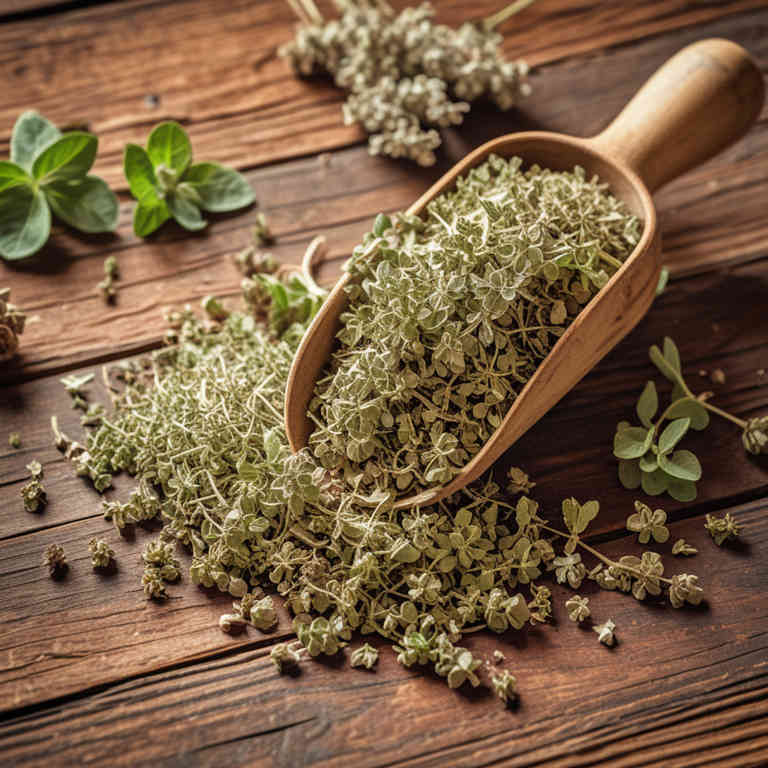Origanum vulgare linctuse for medicinal use

Origanum vulgare linctuse is a herbal preparation made from the dried leaves and flowers of oregano, a plant known for its aromatic and medicinal properties.
It is commonly used in herbalism to soothe respiratory conditions such as coughs, bronchitis, and throat irritation due to its expectorant and antiseptic qualities. The preparation is typically taken as a syrup or tincture to help loosen mucus and reduce inflammation in the respiratory tract. It is often recommended for its warming and stimulating effects on the body.
This remedy has been traditionally used in various cultures for its ability to support respiratory health and ease symptoms of colds and flu.
Uses
Origanum vulgare linctuse has been used to soothe respiratory discomfort and alleviate coughing for centuries.
Historically, it was a key component in traditional remedies for colds, bronchitis, and other respiratory ailments, valued for its expectorant and antiseptic properties. In ancient Greece and Rome, it was often prepared as a syrup or tincture to ease congestion and promote clear breathing. Modern herbal medicine continues to utilize this preparation for its anti-inflammatory and mucolytic effects, often in the form of lozenges or syrups.
Today, it remains a popular natural remedy for coughs and throat irritation, supported by both traditional knowledge and some contemporary scientific research.
Benefits
Origanum vulgare linctuse has health benefits such as aiding in respiratory health, reducing inflammation, and supporting digestion.
This herbal preparation, derived from the common oregano plant, is often used to alleviate symptoms of coughs and colds due to its expectorant properties. It contains compounds like thymol and carvacrol, which have antimicrobial and antifungal effects. Additionally, it may help soothe sore throats and improve overall immune function.
Its use in traditional medicine highlights its potential as a natural remedy for various health concerns.
Constituents
Origanum vulgare linctuse active constituents include carvacrol, thymol, terpenes, and phenolic acids.
These compounds are known for their antimicrobial, anti-inflammatory, and antioxidant properties. Carvacrol and thymol are particularly effective in reducing respiratory tract infections by inhibiting the growth of bacteria and viruses. The terpenes contribute to the preparation's expectorant effects, helping to loosen mucus and ease coughing.
Phenolic acids provide additional support by reducing oxidative stress and enhancing immune function.
Preparation
To make Origanum vulgare linctuse, start by washing and drying fresh oregano leaves.
Next, crush the leaves to release their essential oils. In a saucepan, combine the crushed oregano with a small amount of water and simmer gently for about 15 minutes. Strain the mixture to remove the plant material, then add honey to the liquid and stir until well combined.
Allow the mixture to cool before transferring it to a clean, airtight container for storage.
Side Effects
Origanum vulgare linctuse may lead to gastrointestinal discomfort, including nausea, vomiting, and stomach upset, particularly when taken in high doses.
It can also cause dry mouth and throat irritation due to its expectorant properties. Prolonged use may result in liver toxicity, as some compounds in oregano have been shown to affect hepatic function. Individuals with allergies to plants in the Lamiaceae family may experience allergic reactions, such as skin rashes or respiratory issues.
It is important to consult a healthcare professional before using this preparation, especially for pregnant women, nursing mothers, or those with pre-existing medical conditions.